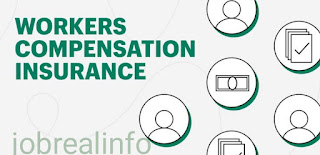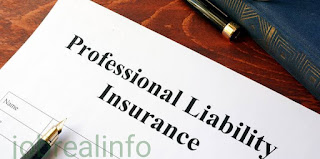What is insurance: Definition, benefits, and types
Insurance is a legal agreement between two parties – the insurer and the insured, also known as insurance coverage or insurance policy. The insurer provides financial coverage for the losses of the insured that s/he may bear under certain circumstances. Let’s discuss in detail what is insurance and how it works,
Insurance is a financial product that provides protection against the risk of financial loss. An insurance policy is a contract between the policyholder (the person or entity buying the insurance) and the insurance company, which agrees to pay for losses covered under the policy in exchange for premium payments.
Benefits of insurance include:
Financial protection: Insurance provides financial protection against unexpected events that could cause financial loss, such as accidents, illnesses, or damage to property.
Risk management: Insurance allows individuals and businesses to transfer risk to an insurance company, which can help to mitigate the impact of financial loss.
Peace of mind: Knowing that you have insurance coverage can provide peace of mind and reduce stress related to potential financial losses.
Legal compliance: Some types of insurance, such as auto insurance and workers' compensation insurance, are required by law.
There are many types of insurance, including:
Life insurance
Health insurance
Auto insurance
Homeowners insurance
1:Renters insurance
2:Disability insurance
3:Long-term care insurance
4:Travel insurance
5:Business insurance
6: Pet insurance
7: Liability insurance
8: Flood insurance
9: Cyber insurance
10: Umbrella insurance
11: Marine insurance
12: Aviation insurance
13: Crop insurance
14: Earthquake insurance
15: Terrorism insurance
16:Workers' compensation insurance.
Overall, insurance provides an important means of financial protection and risk management for individuals and businesses. It's important to carefully review and compare insurance policies to find one that meets your specific needs and budget.
Life insurance
Life Insurance is a type of insurance policy that provides financial protection to your loved ones in the event of your death. When you purchase a life insurance policy, you pay regular premiums to the insurance company, and in exchange, the company agrees to pay a death benefit to your beneficiaries if you pass away while the policy is in force.
There are two main types of life insurance: term life insurance and permanent life insurance.
Term life insurance provides coverage for a specific period of time, typically ranging from one to 30 years. If you pass away during the term of the policy, your beneficiaries will receive the death benefit. However, if you outlive the policy term, the coverage expires, and there is no payout.
Permanent life insurance, on the other hand, provides coverage for your entire life, as long as you continue to pay the premiums. Permanent life insurance policies also have a cash value component that can grow over time, which you can borrow against or use to pay premiums.
Life insurance can help provide financial security for your loved ones by covering expenses such as funeral costs, outstanding debts, and future living expenses. It can also provide peace of mind, knowing that your loved ones will be taken care of if something happens to you.
Health insurance
Health insurance is a type of insurance that helps cover the cost of medical expenses, including doctor visits, hospital stays, prescription drugs, and other healthcare services. Health insurance policies can be purchased by individuals or provided by employers as part of a benefits package.
There are several types of health insurance plans, including:
Health Maintenance Organization (HMO): This type of plan requires you to choose a primary care physician (PCP) who will be your main healthcare provider. Your PCP will manage your care and refer you to specialists as needed.
Preferred Provider Organization (PPO): This type of plan allows you to see any doctor or specialist in the network without a referral, but you'll typically pay less if you choose a provider within the network.
Point of Service (POS): This type of plan is a combination of HMO and PPO plans. You'll have a primary care physician who will manage your care and refer you to specialists, but you can also see providers outside of the network for an additional cost.
High Deductible Health Plan (HDHP): This type of plan has a high deductible, meaning you'll have to pay a certain amount out of pocket before your insurance kicks in. These plans often come with a Health Savings Account (HSA) that you can use to pay for healthcare expenses tax-free.
Health insurance can help protect you from the high cost of medical care, and can also help you access preventative care to stay healthy. It's important to carefully review and compare health insurance plans to find one that meets your healthcare needs and budget.
Education insurance
is not a common type of insurance. However, there are some policies and programs available that provide financial assistance for educational expenses.
One example of education insurance is tuition refund insurance, which is a type of policy that reimburses a portion of the cost of tuition and fees if a student is forced to withdraw from school due to a covered reason, such as illness, injury, or a family emer
Auto insurance
is a type of insurance policy that provides financial protection for your vehicle and covers damage or injury you may cause to others while driving. Auto insurance policies can be purchased by individuals or businesses and are mandatory in most states in the US.
Auto insurance policies typically include several types of coverage, including:
Liability coverage: This covers damage or injury you may cause to others while driving. It includes two types of coverage: bodily injury liability, which covers medical expenses, lost wages, and other damages to other people involved in an accident you caused, and property damage liability, which covers damage to other people's property caused by you while driving.
Collision coverage: This covers damage to your own vehicle in a collision with another vehicle or object.
Comprehensive coverage: This covers damage to your vehicle caused by events such as theft, vandalism, natural disasters, and other non-collision incidents.
Personal injury protection (PIP): This covers medical expenses, lost wages, and other related expenses if you or your passengers are injured in an accident, regardless of who caused the accident.
Auto insurance can provide financial protection for you and your vehicle in the event of an accident or other damage. It's important to carefully review and compare auto insurance policies to find one that meets your needs and budget
Homeowners insurance is a type of insurance policy that provides financial protection for your home and personal property. Homeowners insurance policies can be purchased by homeowners and are typically required by mortgage lenders.
Homeowners insurance
policies typically include several types of coverage, including:
Dwelling coverage: This covers damage to your home caused by events such as fire, hail, wind, and other covered perils. It can also cover the cost of rebuilding your home if it's destroyed.
Personal property coverage: This covers damage or loss of your personal property, including furniture, electronics, and other items. It typically includes coverage for theft and damage caused by covered perils.
Liability coverage: This covers damage or injury you may cause to others while on your property. It can also cover legal fees if you're sued for damages.
Additional living expenses: This covers the cost of living elsewhere if your home is damaged and you can't live in it during repairs.
Homeowners insurance can provide financial protection for your home and personal property, as well as liability protection. It's important to carefully review and compare homeowners insurance policies to find one that meets your needs and budget. Additionally, some areas may require additional coverage for perils such as floods or earthquakes, which may not be covered under a standard homeowners insurance policy.
Renters insurance
is a type of insurance policy that provides financial protection for tenants who rent a home or apartment. Renters insurance policies can be purchased by renters and are typically not required by landlords, but may be required by some property management companies or landlords in certain states.
Renters insurance policies typically include several types of coverage, including:
Personal property coverage: This covers damage or loss of your personal property, including furniture, electronics, and other items. It typically includes coverage for theft and damage caused by covered perils.
Liability coverage: This covers damage or injury you may cause to others while in your rental unit. It can also cover legal fees if you're sued for damages.
Additional living expenses: This covers the cost of living elsewhere if your rental unit is damaged and you can't live in it during repairs.
Renters insurance can provide financial protection for your personal property and liability protection. It's important to carefully review and compare renters insurance policies to find one that meets your needs and budget.
Disability insurance
is a type of insurance policy that provides income replacement if you become unable to work due to illness or injury. Disability insurance policies can be purchased by individuals or provided by employers.
Disability insurance policies typically include several types of coverage, including:
Short-term disability: This provides coverage for a limited period of time, typically up to six months, and can replace a portion of your income if you become unable to work due to illness or injury.
Long-term disability: This provides coverage for a longer period of time, typically two years or more, and can replace a portion of your income if you become unable to work due to illness or injury.
Own-occupation coverage: This provides benefits if you are unable to work in your current occupation due to illness or injury.
Any-occupation coverage: This provides benefits if you are unable to work in any occupation due to illness or injury.
Disability insurance can provide financial protection if you become unable to work due to illness or injury. It's important to carefully review and compare disability insurance policies to find one that meets your needs and budget. Additionally, some policies may have waiting periods before benefits begin or may have exclusions for pre-existing conditions.
Long-term care insurance
is a type of insurance policy that provides financial protection for individuals who need assistance with activities of daily living, such as bathing, dressing, and eating, due to a chronic illness or disability. Long-term care insurance policies can be purchased by individuals or provided by employers.
Long-term care insurance policies typically include several types of coverage, including:
In-home care: This covers the cost of care provided in your own home by a licensed caregiver.
Assisted living: This covers the cost of care provided in an assisted living facility.
Nursing home care: This covers the cost of care provided in a nursing home facility.
Hospice care: This covers the cost of end-of-life care, including pain management and other supportive services.
Long-term care insurance can provide financial protection for individuals who may need assistance with activities of daily living due to a chronic illness or disability. It's important to carefully review and compare long-term care insurance policies to find one that meets your needs and budget. Additionally, some policies may have waiting periods before benefits begin or may have exclusions for pre-existing conditions.
Travel insurance
is a type of insurance policy that provides coverage for unexpected events that may occur while traveling, such as trip cancellation, medical emergencies, and lost or stolen luggage. Travel insurance policies can be purchased for a single trip or for multiple trips over a specific period of time.
Travel insurance policies typically include several types of coverage, including:
Trip cancellation or interruption coverage: This covers non-refundable trip expenses if you need to cancel or interrupt your trip due to a covered reason, such as illness, injury, or death.
Emergency medical coverage: This covers medical expenses if you become ill or injured while traveling. It can also include emergency medical evacuation coverage to transport you to a medical facility.
Lost or stolen baggage coverage: This covers the cost of replacing lost or stolen luggage or personal belongings.
Business insurance
is a type of insurance policy that provides financial protection for businesses against losses and damages that may occur as a result of unforeseen events. Business insurance policies can be purchased by businesses of all sizes, from small startups to large corporations, and can cover a variety of risks depending on the specific needs of the business.
Business insurance policies typically include several types of coverage, including:
General liability coverage: This covers damages or injuries that occur on your business property or as a result of your business operations.
Property insurance: This covers damage or loss to your business property, including buildings, equipment, and inventory.
Business interruption insurance: This covers lost income and expenses if your business is unable to operate due to a covered event, such as a fire or natural disaster.
Workers' compensation insurance:
This is a type of insurance policy that provides coverage for employees who are injured or become ill as a result of their work. Workers' compensation insurance is required by law in most states for businesses that have employees.
Workers' compensation insurance policies typically include coverage for:
Medical expenses: This covers the cost of medical treatment for employees who are injured or become ill as a result of their work.
Lost wages: This covers a portion of an employee's lost wages if they are unable to work due to their injury or illness.
Vocational rehabilitation: This covers the cost of training or education for employees who are unable to return to their previous job due to their injury or illness.
Death benefits: This provides financial support for the dependents of employees who are killed as a result of their work.
Workers' compensation insurance can provide important financial protection for employees and businesses in the event of a work-related injury or illness. It's important for businesses to comply with their state's workers' compensation insurance requirements, and to carefully review and compare policies to find one that meets their specific needs and budget. Additionally, workers' compensation insurance policies may have exclusions or limitations for certain types of injuries or illnesses, such as those related to drug or alcohol use
Professional liability insurance:
This covers damages or injuries that occur as a result of professional services provided by your business.
Business insurance can provide financial protection for businesses against a variety of risks and liabilities. It's important to carefully review and compare business insurance policies to find one that meets the specific needs of your business. Additionally, some industries may require specific types of insurance coverage, such as commercial auto insurance for businesses with vehicles, or cyber liability insurance for businesses that store sensitive customer data.
Pet insurance
is a type of insurance policy that provides coverage for unexpected veterinary expenses that may occur as a result of illness or injury to a pet. Pet insurance policies can be purchased for dogs, cats, and other household pets.
Pet insurance policies typically include several types of coverage, including:
Accident coverage: This covers veterinary expenses related to accidental injury to your pet, such as broken bones or lacerations.
Illness coverage: This covers veterinary expenses related to illness or disease, such as cancer, diabetes, or allergies.
Wellness coverage: This covers routine veterinary expenses, such as annual check-ups, vaccinations, and dental cleanings.
Pet insurance can provide financial protection for unexpected veterinary expenses that may occur as a result of illness or injury to your pet. It's important to carefully review and compare pet insurance policies to find one that meets the specific needs of your pet and your budget. Additionally, some policies may have exclusions for pre-existing conditions or may have specific requirements for coverage related to certain breeds or ages of pets.
Cyber insurance
is a type of insurance policy that provides coverage for businesses and individuals against losses and damages resulting from cyber attacks and data breaches. Cyber attacks and data breaches can result in significant financial losses and reputational damage, making cyber insurance an important form of protection for businesses and individuals who rely on digital systems and data.
Cyber insurance policies typically include several types of coverage, including:
Data breach and privacy liability coverage: This covers expenses related to data breaches, including notification costs, credit monitoring, and legal fees.
Network security liability coverage: This covers expenses related to cyber attacks, including investigation and response costs, and damages resulting from network security failures.
Business interruption coverage: This covers lost income and expenses if your business is unable to operate due to a cyber attack.
Media liability coverage: This covers damages resulting from libel, slander, or copyright infringement related to online content.
Cyber insurance can provide financial protection for businesses and individuals against the losses and damages resulting from cyber attacks and data breaches. It's important to carefully review and compare cyber insurance policies to find one that meets the specific needs of your business or individual circumstances. Additionally, some policies may have exclusions or limitations for certain types of cyber attacks, such as attacks related to phishing or social engineering.
Flood insurance
is a type of insurance policy that provides coverage for property damage and losses caused by flooding. Floods can occur from a variety of sources, including heavy rain, snowmelt, and coastal storms, and can result in significant property damage and financial loss.
Flood insurance policies are typically offered by the National Flood Insurance Program (NFIP), which is administered by the Federal Emergency Management Agency (FEMA). Flood insurance policies can be purchased by homeowners, renters, and business owners in communities that participate in the NFIP.
Flood insurance policies typically include coverage for:
Building property: This covers damage to the physical structure of the building, including the foundation, walls, floors, and electrical and plumbing systems.
Personal property: This covers damage to personal belongings, including furniture, appliances, and clothing.
Flood insurance can provide financial protection for property owners and renters against the devastating effects of flooding. It's important to note that flood insurance policies typically have a waiting period before coverage begins, and may have limits on the amount of coverage available for certain types of property. Additionally, some high-risk areas may have higher premiums for flood insurance coverage.
Liability insurance
is a type of insurance policy that provides protection for individuals and businesses against legal claims and lawsuits that may arise as a result of their actions or negligence. Liability insurance policies can provide coverage for a variety of risks, including personal injury, property damage, and professional malpractice.
Liability insurance policies typically include several types of coverage, including:
General liability coverage: This covers damages or injuries that occur on your property or as a result of your business operations.
Professional liability coverage: This covers damages or injuries that occur as a result of professional services provided by your business.
Product liability coverage: This covers damages or injuries that occur as a result of products sold or distributed by your business.
Directors and officers liability coverage: This covers damages or injuries that occur as a result of the actions or decisions of your business's directors or officers.
Liability insurance can provide financial protection for individuals and businesses against legal claims and lawsuits that may arise as a result of their actions or negligence. It's important to carefully review and compare liability insurance policies to find one that meets your specific needs and budget. Additionally, some industries or professions may require specific types of liability insurance coverage, such as medical malpractice insurance for healthcare professionals or errors and omissions insurance for real estate professionals
Marine insurance
Marine insurance is a type of insurance that provides coverage for ships, cargo, and other marine-related risks. It is designed to protect against financial loss or damage to vessels, goods, and other property that are transported across waterways.
Marine insurance policies typically cover a variety of risks, including damage or loss caused by storms, collisions, piracy, and other perils. They may also provide coverage for liabilities arising from accidents, pollution, or other incidents that occur during the course of marine transport.
Marine insurance can be purchased by ship owners, cargo owners, and other parties involved in marine transport. There are several types of marine insurance policies available, including hull insurance, cargo insurance, liability insurance, and war risk insurance.
Marine insurance is an important tool for managing the risks associated with marine transport. It helps ensure that goods and vessels are protected against loss or damage, and provides peace of mind to those involved in the maritime industry.
Aviation insurance
is a type of insurance that provides coverage for risks associated with aircraft operations. It is designed to protect against financial loss or damage to aircraft, passengers, cargo, and other property that may be affected by aviation-related incidents.
Aviation insurance policies typically cover a range of risks, including damage or loss caused by accidents, fire, theft, or other perils. They may also provide coverage for liabilities arising from incidents such as collisions, injuries to passengers or third parties, or damage to property on the ground.
Aviation insurance can be purchased by aircraft owners, operators, and other parties involved in aviation-related activities. There are several types of aviation insurance policies available, including hull insurance, liability insurance, and passenger and cargo insurance.
Hull insurance provides coverage for damage or loss to the aircraft itself, while liability insurance provides coverage for claims against the insured for bodily injury or property damage resulting from the use of the aircraft. Passenger and cargo insurance provides coverage for injury or loss to passengers or cargo being transported by the aircraft.
Aviation insurance is an important tool for managing the risks associated with aviation operations. It helps ensure that aircraft and passengers are protected against loss or damage, and provides peace of mind to those involved in the aviation industry.
Crop insurance
Crop insurance is a type of insurance that provides coverage for farmers and other agricultural producers against the loss of crops due to natural disasters, weather-related events, or other causes. Crop insurance is designed to protect against financial loss resulting from reduced yields, crop damage, or other adverse events that could negatively impact a farmer's income
is a type of insurance that provides coverage for losses and damages caused by earthquakes. It is designed to protect against financial loss resulting from earthquakes, which can cause significant damage to buildings, homes, and other property.Earthquake insurance policies typically cover a range of losses, including damage to buildings, homes, personal property, and additional living expenses. Policies may also include coverage for business interruption, earthquake-caused fires, and other related losses.























0 Comments